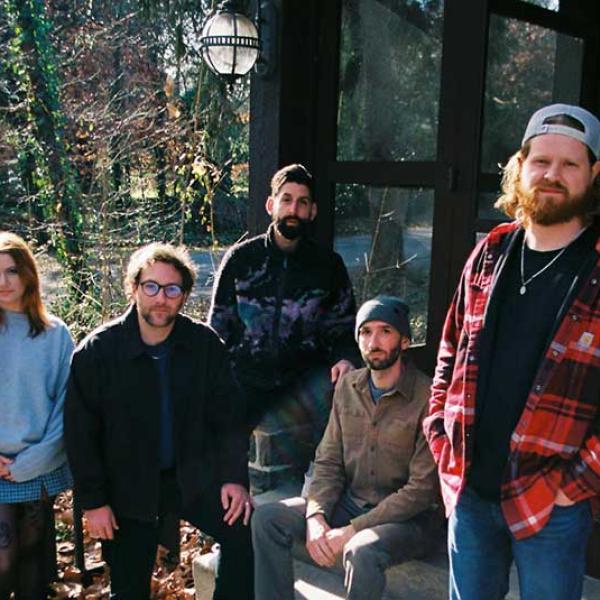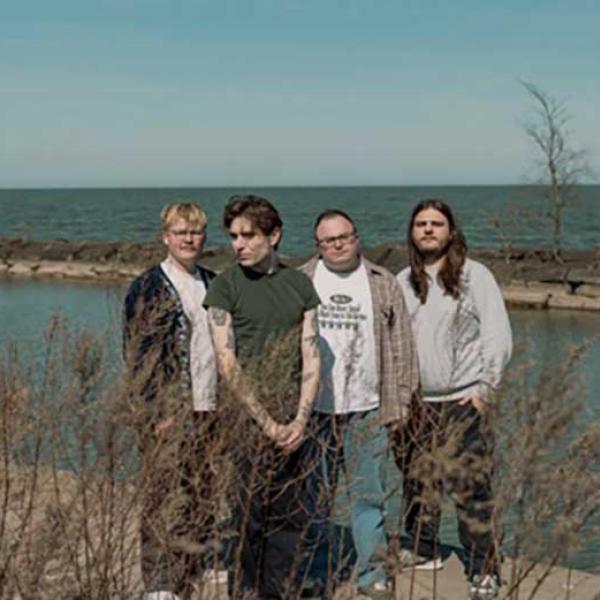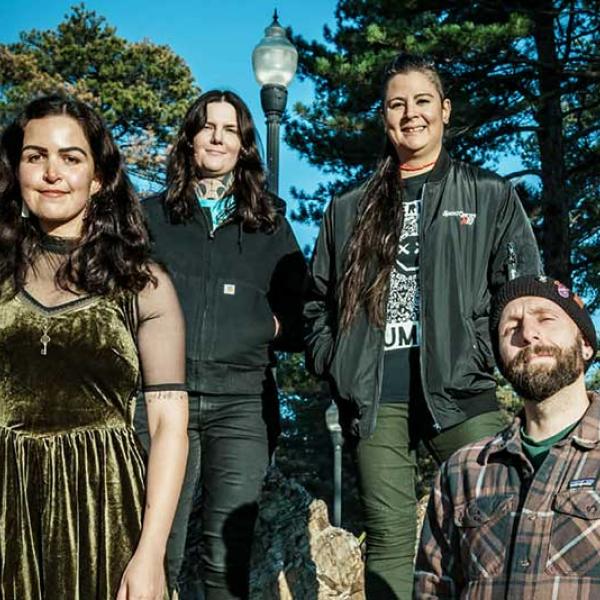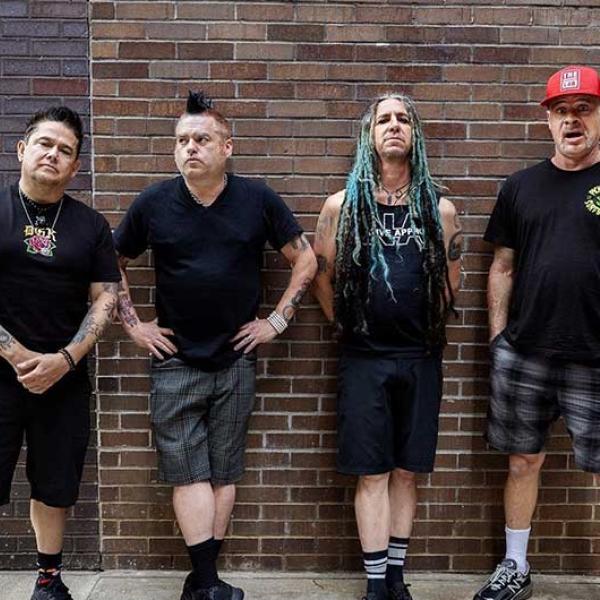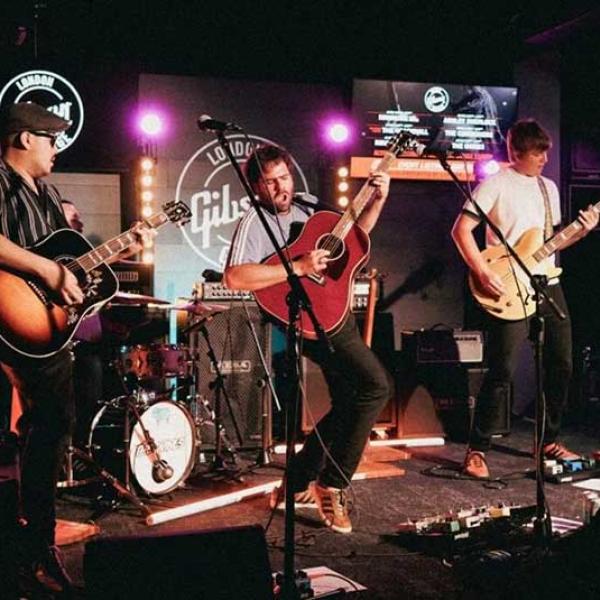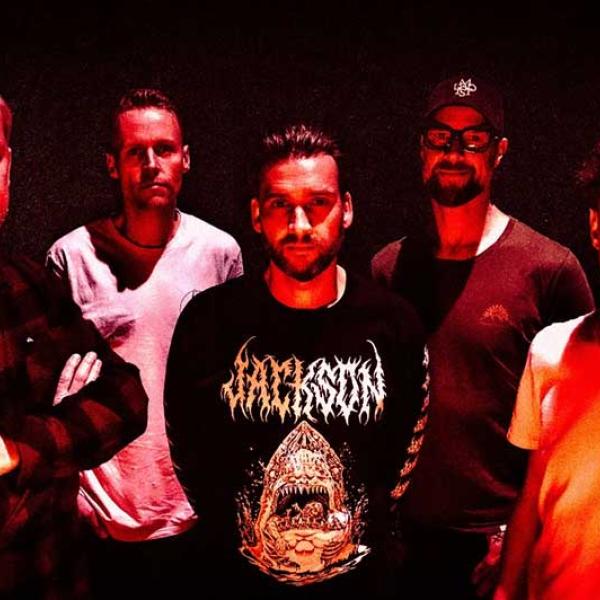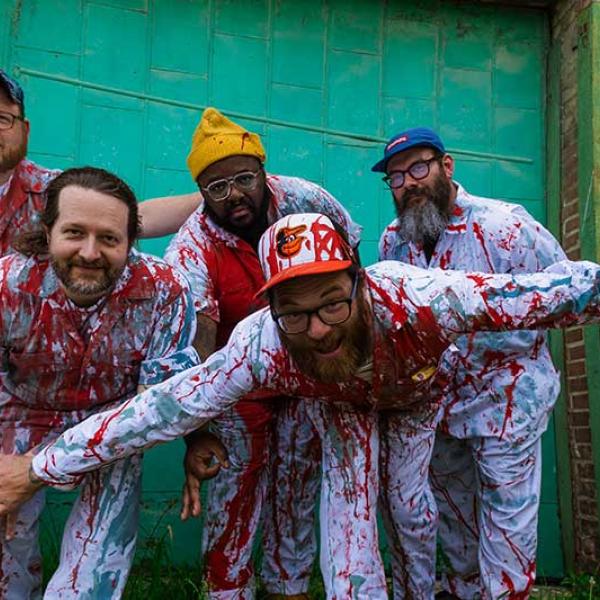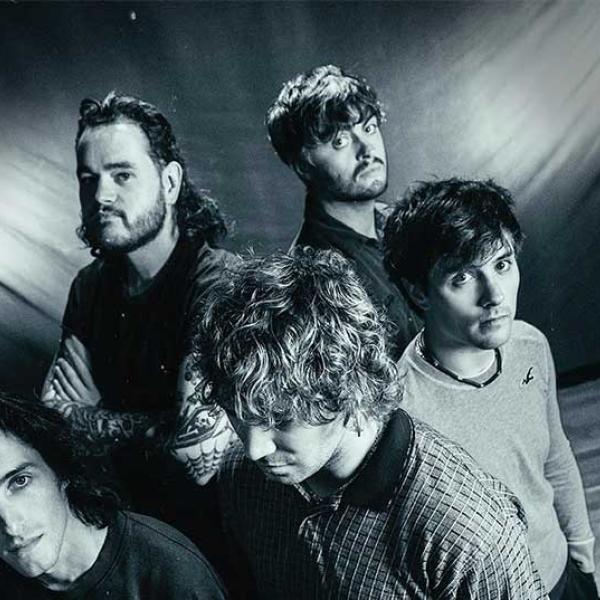Features
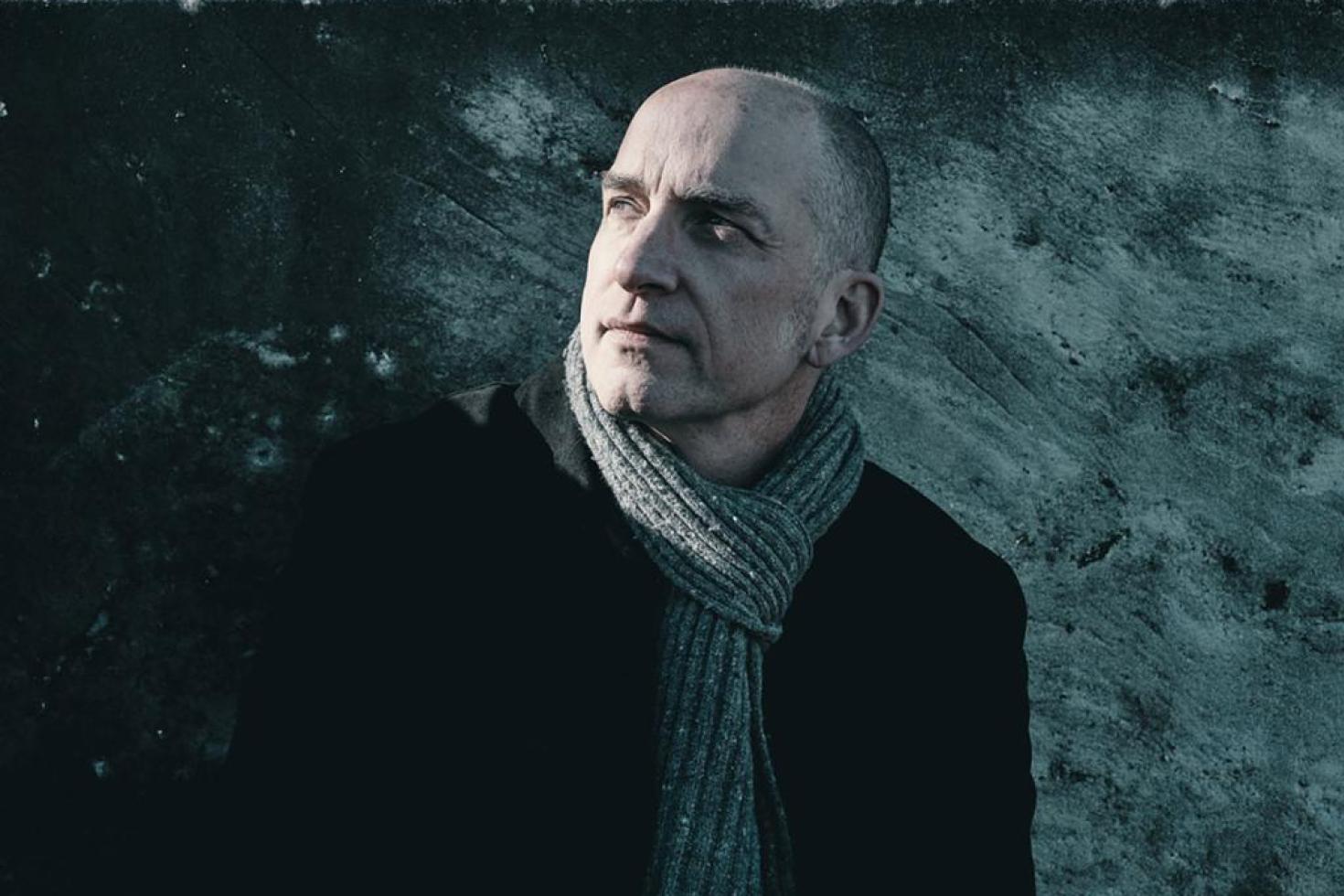
We recently got the chance to sit down with Robbins to talk about his second solo album, 'Baslisk,' out this Friday on the legendary Dischord Records. Next to all of the musical projects that he has been a part of since the mid 80s - including but not limited to Government Issue, Jawbox, Burning Airlines and Office Of Future Plans - and being one of the best producers in the game, J. Robbins is still busy making new music.
Following 2019’s ‘Un-becoming,’ Robbins is gearing up for the release of his sophomore solo album, ‘Basilisk.' With the help of friends like Gordon Withers (cello and second guitar), Dave Hadley (pedal steel) and John Haggerty (check the blazing guitar solo in ‘Exquisite Corpse’), ‘Basilisk’ sounds impressive from start to finish. It’s also his most diverse album to date, showing the multiple sides of Robbins’ musical prowess, not in the least thanks to the addition of synths, inspired by his love of film soundtracks, Peter Gabriel’s music, and by studio work he had done with the band Locrian.
PRT: You wrote a lot of what would become ‘Basilisk’ back in 2020 when the pandemic hit. Were you already playing with the idea of recording another album beforehand or was this a pandemic project?
J: I had been writing continuously since finishing my first solo record “Un-Becoming.” The music for the song “Old Soul” was actually written before that record but the lyrics didn’t come together until 2022 or so. It’s a pandemic record by virtue of the way the pandemic influenced everyone’s ability to do anything … it probably had another influence in the way that the enforced isolation allowed me a little more time to write, and working alone meant that I went a little deeper into electronic music than I had before.
PRT: You recorded the album in early 2021, I think. How come it took until now for the album to be released?
J: There were two primary “live-band” tracking sessions for the record: one in March 2021, and a second in February 2022. Lots of recording at home in between and after. Lots of mix time, wich included time to walk away and try to avoid getting tunnel vision about things. I had about 15 pieces to work with and I wanted to narrow it down to 10 or 11 that really felt like they belonged together. I have a lot more electronic based stuff on a hard drive here that I’m trying to figure out how to work with. I wanted to make something that felt like both a refinement of things I had been doing for a long time, and also taking steps into territory I hadn’t explored at all, and then to make sure those two ideas would have a way to cohere as a record. But it just kind of took the time that it took.
PRT: You had help on the album from the likes of Brooks Harlan, Darren Zentek and Gordon Withers among others. People you have worked a lot with over the years. So how is ‘Basilisk’ different from say, an Office Of Future Plans album?
J: I really love playing and creating with those guys. Peter Moffett too, though he didn’t play on this record. The songs on the Office of Future Plans record were written and demoed by me with the intention of maybe making a solo record, and it only became a band with its own name and identity once I started rehearsing and recording with those guys and I felt like their contributions made everything so much more 3-dimensional. And I really love the feeling of band cameraderie. But a “capital B” band has a collective identity, a collective creative process, and a collective point of view. I didn’t want to ever feel like I was imposing my will onto those guys while still calling it a band - but after recording that first batch of songs, trying to write as a collective was not really panning out. A lot of that was just due to nobody having enough time to dedicate to that kind of process. At the same time I was writing songs full steam ahead with very specific intentions - among which was to be able to play the songs in different arrangements (solo acoustic for example) and have them stilll hold up, and I felt like I needed to take responsibility for what I was making in a way that I had never really done before. It kind of made things simpler to be “J. Robbins” and I needed that to be be able to move forward. But now it’s wonderful that they are still wanting to contribute to what I’m doing, because they are fucking awesome, I love them, and it still always makes things better. But to the point, and just as an example, I wanted to make some electronic-based songs, and I think it would have been a harder process to negotiate that with a band. Maybe not for them, but in my mind. And I wanted to record some songs that were strictly a 3-piece band format, with no second guitar part or cello, so what would Gordon’s role have been in that, creatively? If it’s a “capital B” Band, all those things need to happen by collective will. I think there is a definite difference that you can hear, though it’s hard to quantify in words.
PRT: This is the second album you are releasing under your own name. Does it feel different to have your own name on the album cover rather than a band name?
J: Of course it does. But I also feel like I was able to put everything I had into both records, and do the necessary work in my own time without worrying about anyone else’s expectations, so I can kind of stand behind it more. I love the collaborative aspects of it very much, but I feel good about the buck stopping with me. And there is a pragmatic aspect to it too, in that, when Office of Future Plans or Channels would go out on tour, 99% of the time the advertising would say “with J. Robbins, ex-Jawbox” or whatever - and of course that’s what you have to do to get people to pay attention to a new project, is to point out some connection to something they might already know. But at a certain point, it’s like, “why did we create this other new creature, “THIS band,” when most people will only focus on the familiar context? Or, you risk nobody hearing what you think of as your best work, because you are working to avoid the “ex-members of” thing, but they are not looking out for something new so they miss it entirely. So pragmatically speaking, it makes sense on a few levels to just call the project by my name. And also, at this point I know I’ll be making music til I keel over and die, so I think it’s a good way forward.
PRT: I could imagine that if you have been producing other people’s music all day long, the last thing you want to do is write more music yourself. Or is it the opposite and does it work inspiring?
J: Exactly - sometimes physically tiring, but on a deeper level it’s almost always inspiring and nourishing to have that inside view of other people’s creativity. I love it, to me it’s a kind of dialog or a wonderful feedback loop.
PRT: You produced the album yourself. Do you find it harder or easier to handle production when it’s your own material?
J: Mostly easier. Sometimes getting through this record I got in the weeds a bit and found myself wishing for a mentor figure to step in and give me some direction, but then I would just tell myself to put on my big boy trousers and figure it out.
PRT: 'A Ray Of Sunlight’ has some awesome Bob Mould vibes. I feel like him and you have had something of a similar trajectory. You both played in highly cherished and influential bands, played in other projects since and are now releasing music under your own name. Was touring with him in 2022 something that was bound to happen at some point?
J: I would never say anything was “bound” to happen - I take nothing for granted. He is a huge inspiration to me - I feel incredibly fortunate that I got to do those shows. I hope we’ll play together again!
PRT: ‘Sonder’ and ‘Dead Eyed God’ are a completely different beast with a more ambient sound. Is there such a thing as a framework within which you work or do you like to leave all possibilities open?
J: Keep it open, for sure. The feeling of discovery is so important to me, it has to be there even if I’m making something in a familiar idiom. I don’t want to ever be going through the motions.
PRT: You had already been working on more abstract, electronic based music inspired by your love of soundtracks. Is that something you would like to explore further in the future by scoring a movie? Or do you prefer to look at your songs as a vehicle for expressing your thoughts?
J: This is a vehicle for personal expression, but no question I’d love to take a shot at a film score.
PRT: What is it that you still get out of writing music after all these years?
J: If I could explain it in words, I might not need to be making music. I mean, are we just supposed to stop creating at a certain point? Just have to do it.
PRT: Have you ever thought about doing somethin like ‘An evening with J. Robbins’ where you play songs from all of the different bands and projects you have been a part of? Or do you like the idea of them existing as their own thing?
J: I’ve done that a few times, in the acoustic sets I’ve done with Gordon, we’ve played anything from any of the bands that would translate to acoustic guitar and cello. And in the band shows too, to a lesser extent, if I can look at an old song and feel like it’s something that will work, that feels honest and it’s a song that I brought to that project, then we’ve probably put it into a set at some point. Certain Jawbox songs for example just don’t work in that context, they’re too bound up in the sound of that band. But mostly, if they’re good songs, and the things that makes them work aren’t reducible to a specific person’s playing from a specific band, if I can do it with the blessing of my former bandmates and it feels like an authentic expression, then why not play them?


